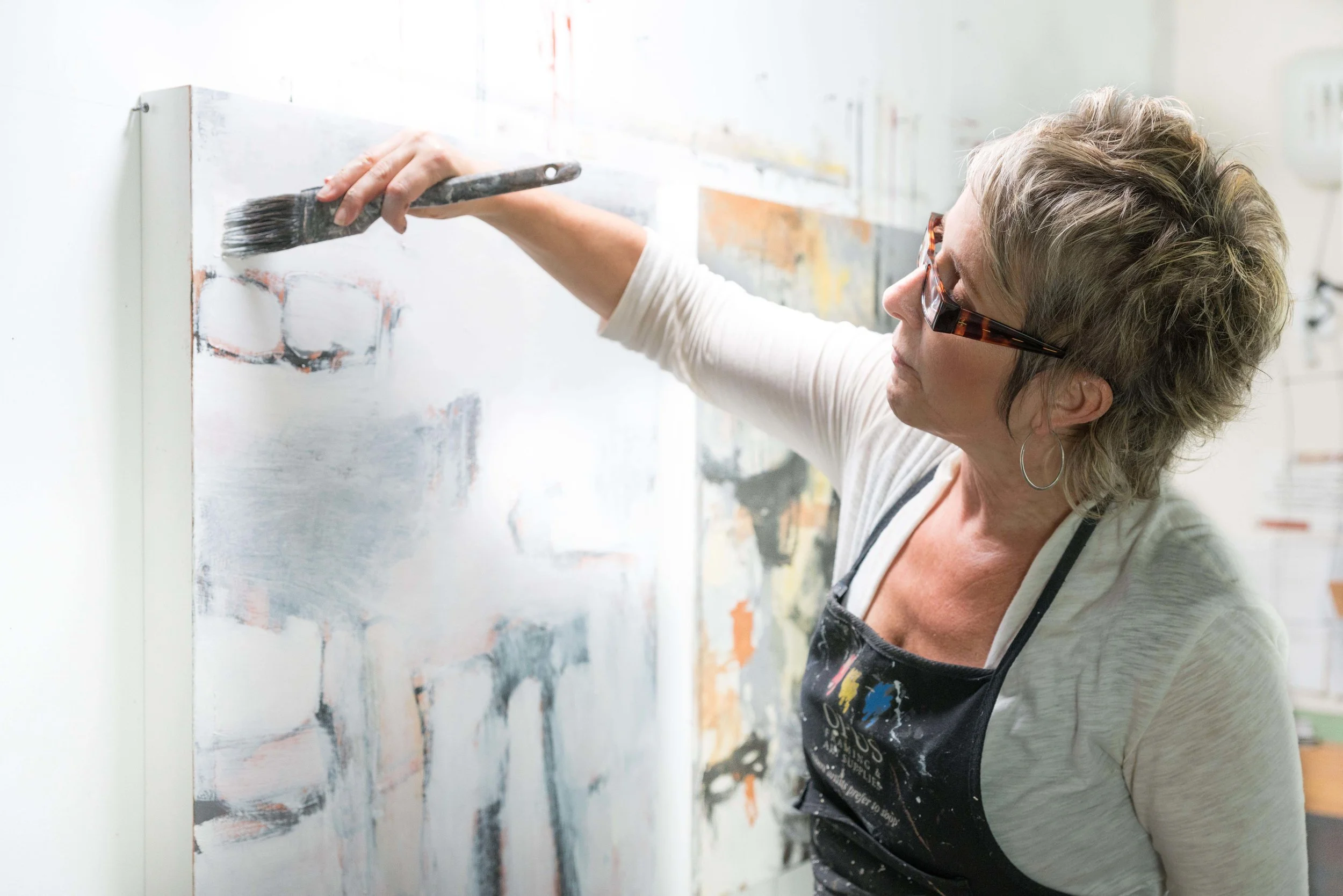PRACTISING RADICAL SELF-ACCEPTANCE
/I often use the phrase 'radical self-acceptance’ to remind myself, and my coaching clients, of this very necessary action that helps us make better art and enjoy the process even more. But what does this really mean and just how does it support the making of our art?
How easily we accept ourselves – flaws and all – has a direct relationship to the art we make. Our art is an extension of ourselves, our pure expression, our birthed creation, and when it comes from a place of stillness and truth it carries with it an indescribable quality – a quality that deeply resonates for us and with others.
I believe that the quality of the relationship we have with ourselves affords us a much better opportunity to tap into the deep reservoir of self. When we are willing to look inside and accept all the various parts of ourselves, we can then show more of our truest expression in our art-making. We can stop censoring ourselves and truly trust the process of making our work. This is when our authenticity can't help but shine through.
In fact, when we focus on developing our self-compassion instead of our self-esteem we treat ourselves with more kindness and care, much like we extend towards a loved one or a good friend. When we extend this kindness towards ourselves we are more willing to accept our flaws and imperfections…which, of course, we all have.
By recognizing that all people are a work in process – imperfectly perfect – we can avoid the trap of expecting so much from ourselves. When we bump up against failure – which is an essential part of the creative process – we can shift away from reacting as if we have done something horribly wrong or that it shouldn’t be happening at all. We can give less energy to the idea that it means something about us and our abilities and instead we just notice and acknowledge what is occurring, recognizing that it’s normal and is part of being human.
A mindfulness practice helps us immensely to shift this tendency to be self-critical and allows for self-acceptance to grow in its place. In an interview with Olga Khazan for The Atlantic, psychology professor Kristen Neff spoke about how true self-compassion requires mindfulness and why it is a more effective process for change and growth than self-esteem building.
This section of the interview really stood out for me and supports the necessity of this practice not only for artists, but for everyone:
“Self-compassion also entails a mindfulness. In order to have self-compassion, we have to be willing to turn toward and acknowledge our suffering. Typically, we don't want to do that. We want to avoid it, we don't want to think about it, and want to go straight into problem-solving.
And in fact, I would argue that self-compassion also provides a sense of self-worth, but it's not linked to narcissism the way self-esteem is. It's not linked to social comparison the way self-esteem is, and it's not contingent, because you have self-compassion both when you fail and when you succeed. The sense of self-worth that comes from being kind to yourself is much more stable over time than the sense of self-worth that comes from judging yourself positively.”
As artists we need to strengthen our ability to self-support as we negotiate the emotional labour that art-making requires. When we consistently practise radical self-acceptance, by extending compassion towards ourselves, we are more present and able to embrace the challenges of making our work. When we accept ourselves, we accept our art. This allows for greater ease in the process of making it – even when we inevitably struggle or fail – helping us to stay engaged and connected to our authentic expression.
Perhaps today you can bring more awareness to your mindset while making your art and just notice the quality of your thoughts. Is there a way that you could reframe any of those thoughts and offer yourself some much needed self-acceptance?


